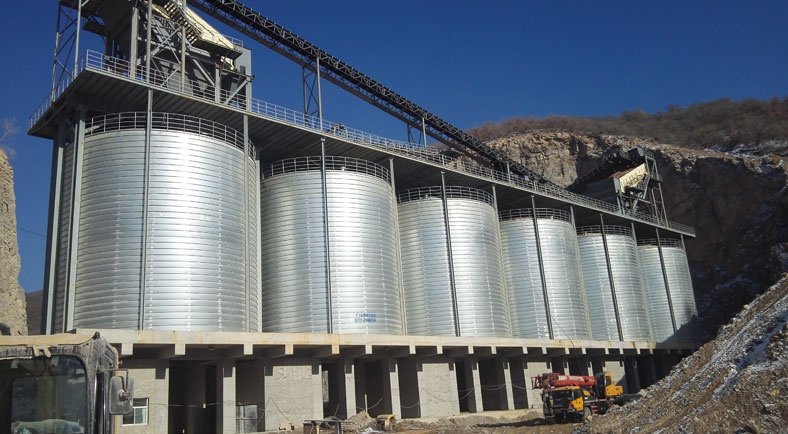
Calcined Petroleum Coke (CPC) is a crucial raw material used in various industrial applications, including aluminum production, steel manufacturing, and as a fuel source. Proper storage of CPC is essential to maintain its quality and prevent contamination. In this article, we will explore various storage methods and best practices to ensure the integrity and usability of CPC.
Bulk storage is a common method for storing CPC in large quantities. It involves the use of hoppers, silos, or bulk storage bins. These are the key considerations for effective bulk storage:
It is essential to maintain a controlled environment, particularly in terms of temperature and humidity, to prevent CPC from absorbing moisture or deteriorating. Implementing an appropriate ventilation system can help regulate temperature and prevent the accumulation of moisture.
Employ appropriate material handling equipment, such as conveyor systems, to ensure the efficient and gentle transfer of CPC to and from storage. Properly designed loading and unloading systems minimize dust emissions and product degradation.
Regularly check the bulk storage to prevent CPC segregation, which can lead to inconsistent product quality. Implementing a first-in, first-out (FIFO) system helps maintain product consistency.

Bagged storage is used for smaller quantities of CPC and is often employed for distribution to end-users. Here are key considerations for effective bagged storage:
Utilize high-quality, moisture-resistant bags or containers to protect CPC from environmental influences. Properly sealed bags prevent moisture ingress, contamination, and the loss of volatile components.
Store bags on pallets or racks to keep them off the ground and prevent direct contact with moisture. Maintain a clean and organized storage facility to prevent contamination from foreign materials.
Clearly label bags with essential information, such as production date and batch number, for easy tracking and quality control. Implement an inventory management system to ensure proper rotation of stock.
Covered storage provides protection from environmental factors such as rain and direct sunlight, which can adversely affect CPC quality. Key points to consider for covered storage are:
Ensure the storage area has a robust and weatherproof roof structure to prevent rain and sun exposure. Regularly inspect the roof to address any leaks or damage.
Maintain proper ventilation in the storage area to regulate temperature and humidity. Adequate airflow helps prevent the buildup of moisture and condensation.
In some cases, CPC may require specialty storage methods, depending on the industry or application. For example, the aluminum industry often uses anodes for electrolysis, which require special storage considerations:
Store anode baking rings in a clean and controlled environment to maintain their electrical conductivity and mechanical strength. Regularly inspect anode rings for any signs of damage or contamination.
Employ conveyor systems for the efficient transfer of anode baking rings to the production process. Regularly maintain and clean conveyor belts to prevent contamination.
Effective storage methods for Calcined Petroleum Coke are critical to ensuring its quality and usability in various industrial applications. Whether using bulk storage, bagged storage, covered storage, or specialty storage methods, attention to environmental control, equipment handling, and cleanliness is key. Proper storage practices not only preserve CPC quality but also reduce the risk of contamination and maintain product consistency. By implementing these storage methods and best practices, industries can continue to rely on CPC as a vital component in their processes.

Write a Message